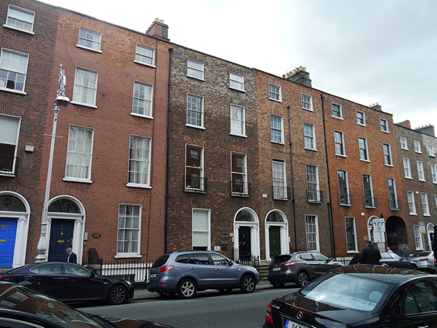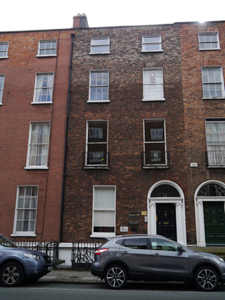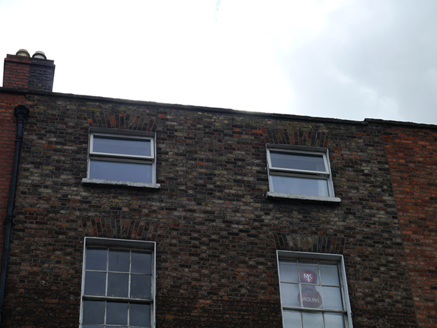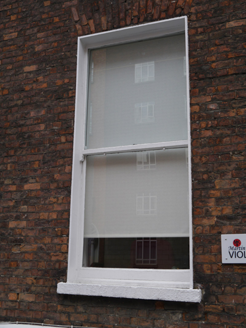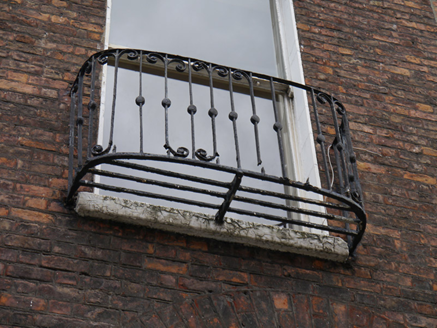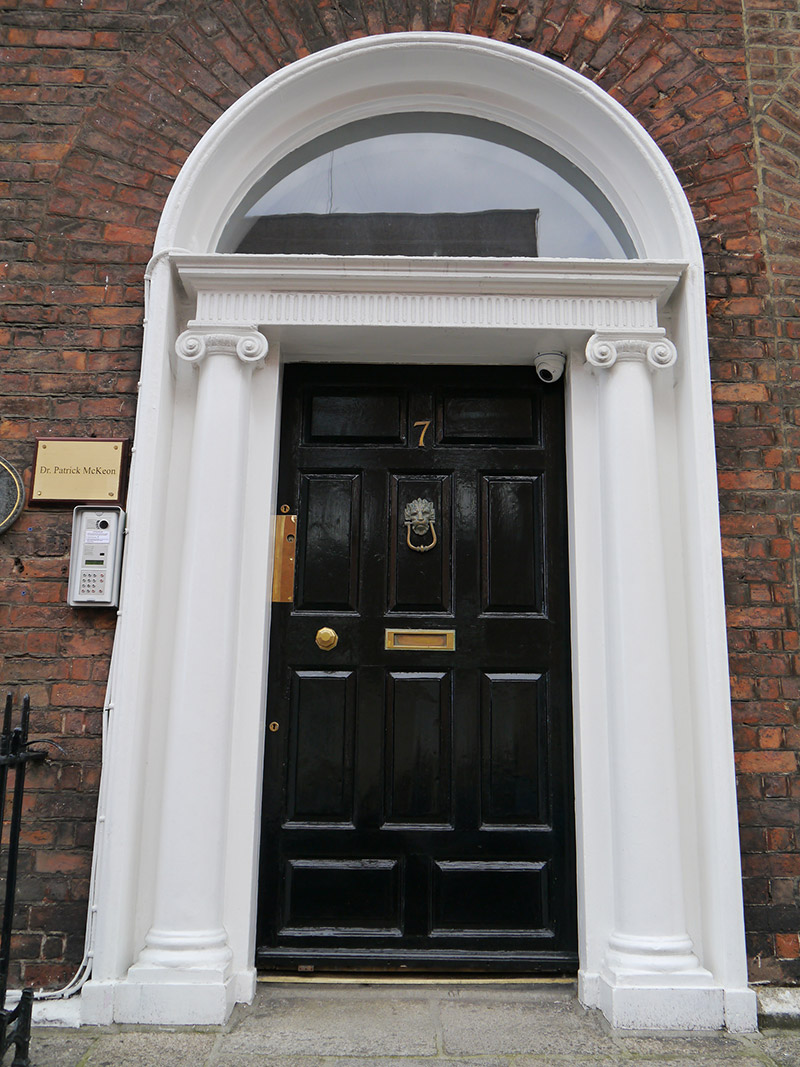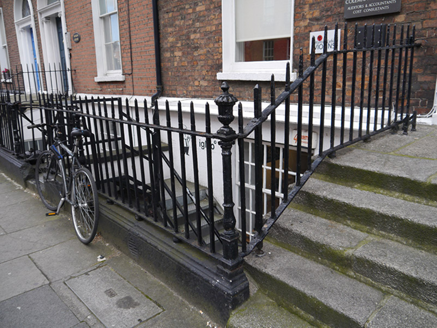Survey Data
Reg No
50930236
Rating
Regional
Categories of Special Interest
Architectural, Artistic
Original Use
House
In Use As
Office
Date
1820 - 1830
Coordinates
316353, 232992
Date Recorded
16/09/2015
Date Updated
--/--/--
Description
Terraced two-bay four-storey over basement townhouse, built c. 1825, with two-stage return to rear (south). Now in use as offices. M-profiled slate roof, hipped to west of rear span, concealed by brick parapet with granite coping, replacement brick chimneystacks with lipped clay pots to east party wall. Parapet gutters and cast-iron downpipe to east of principal elevation (north). Red brick walling laid in Flemish bond (refaced on upper floors), over ruled-and-lined rendered walling to basement, beneath granite stringcourse. Square-headed window openings with brick voussoirs, patent reveals and granite sills. Generally early twentieth-century one-over-one sliding timber sash windows with horns, original six-over-six to second floor, replacement ten-over-twenty pane timber casement to basement and uPVC casements to third floor. Round-headed door opening to principal elevation with brick voussoirs, moulded reveals and engaged Ionic columns supporting fluted frieze and cornice surmounted by plain fanlight over ten-panelled timber door. Granite entrance platform with cast-iron boot scraper approached by five granite steps, flanked by cast-iron railings with decorative corner posts over granite plinth, enclosing basement area. Coal-hole cover to pavement. Recent steel steps to basement level.
Appraisal
Laid out c. 1820, Pembroke Street Upper is characterised by well-proportioned late-Georgian red brick terraces which have restrained detailing and classically-styled doorcases. This typical example of a late-Georgian townhouse retains its original façade composition, a good Neo-classical doorcase and is further enriched by the original setting features including the cast-iron railings. Forming part of a terrace of similar townhouses, this building makes a positive contribution to the streetscape of Pembroke Street Upper and to the historic Georgian core of south Dublin.
